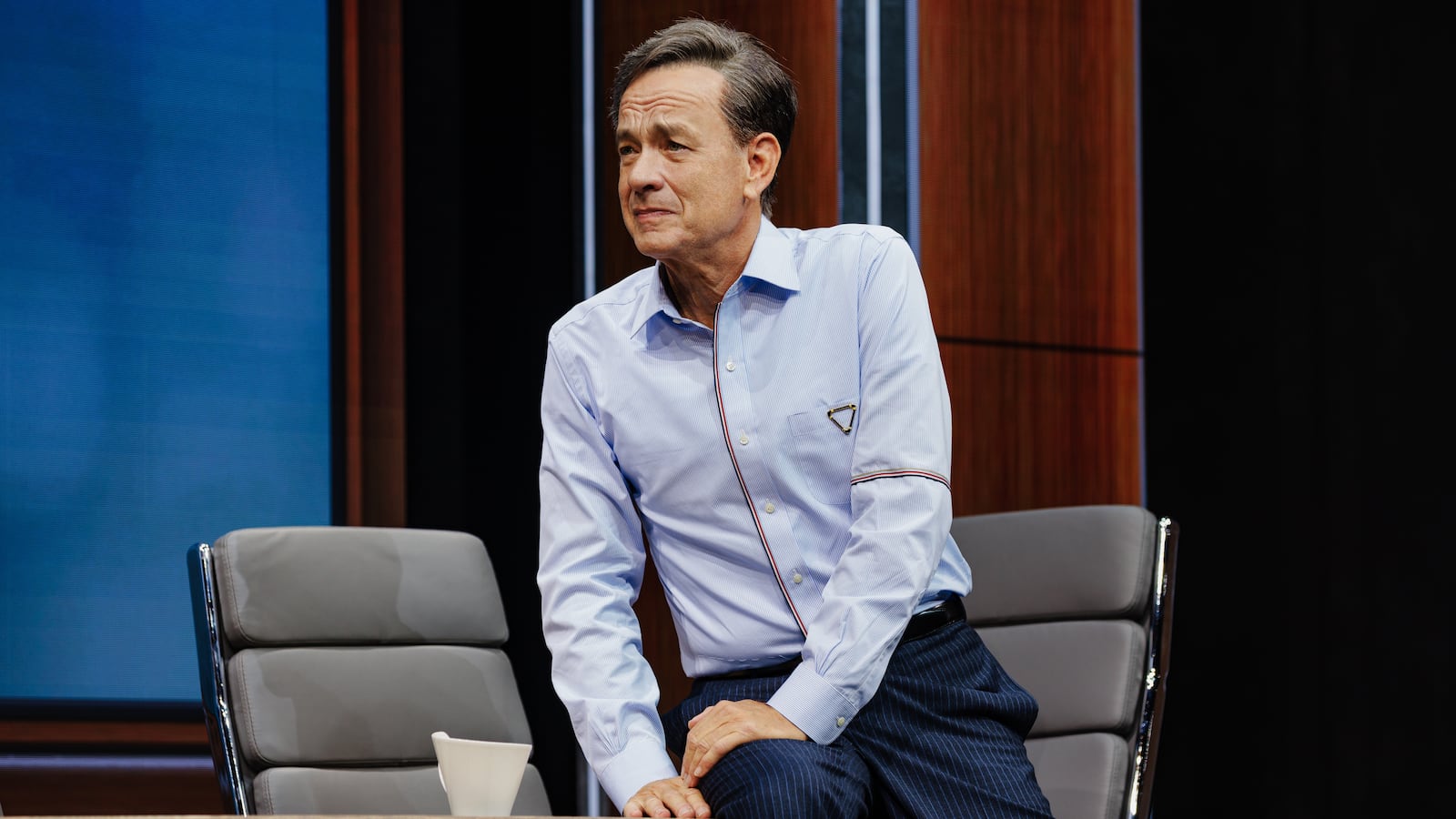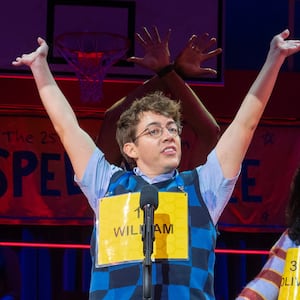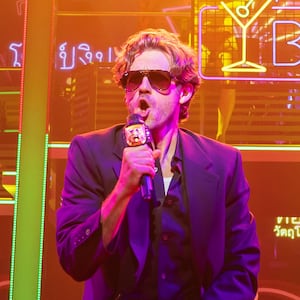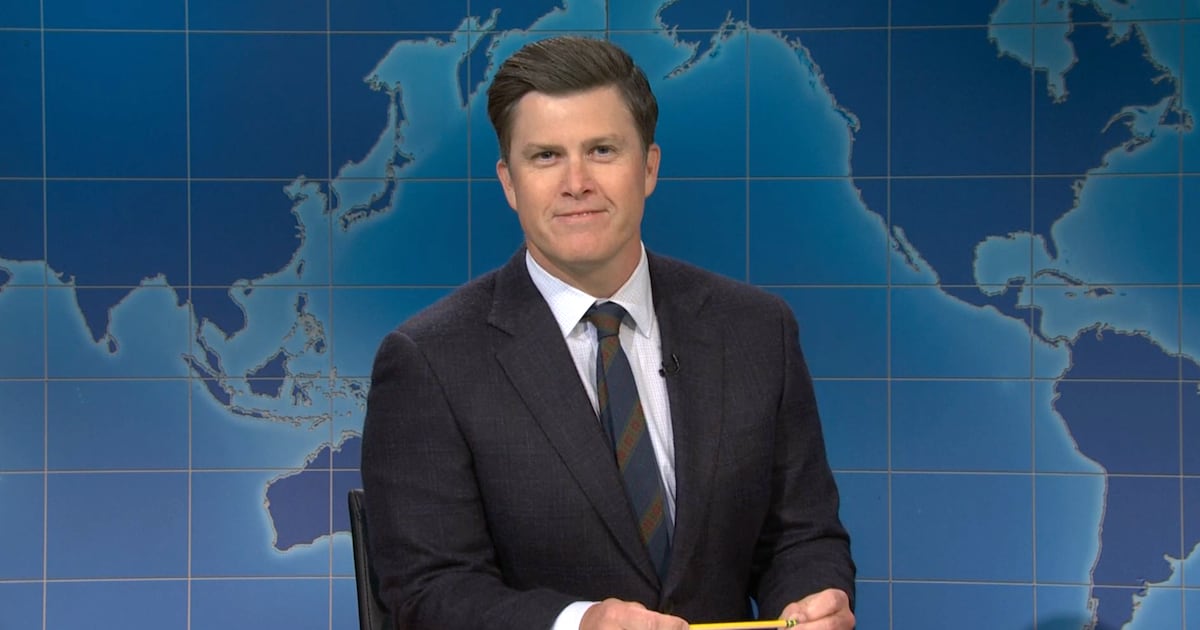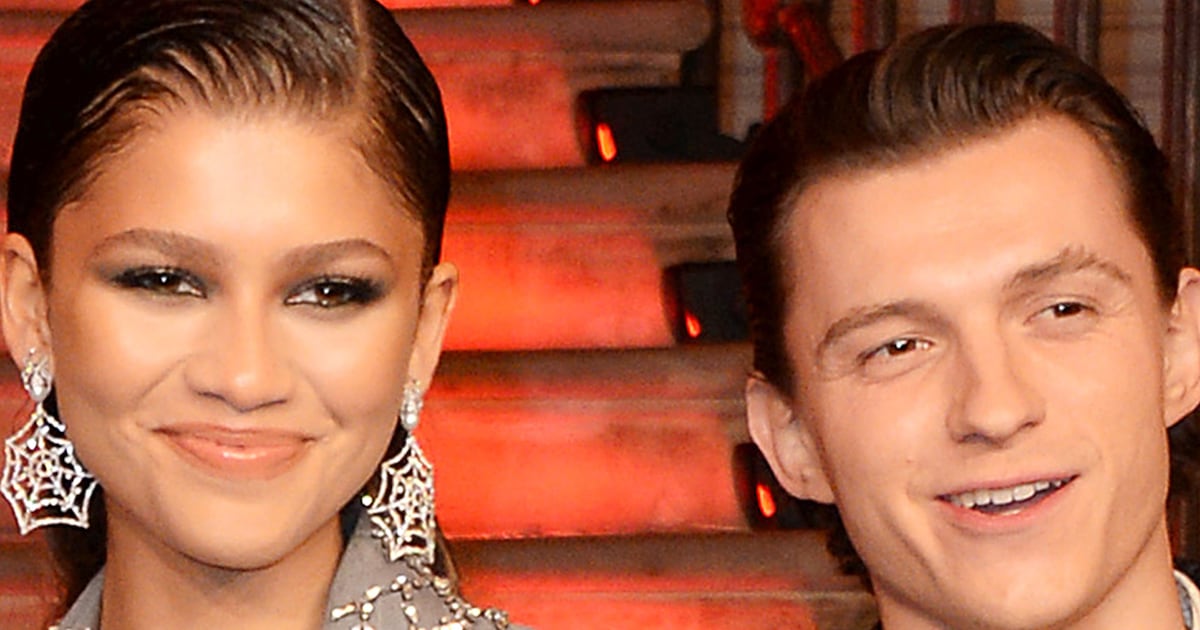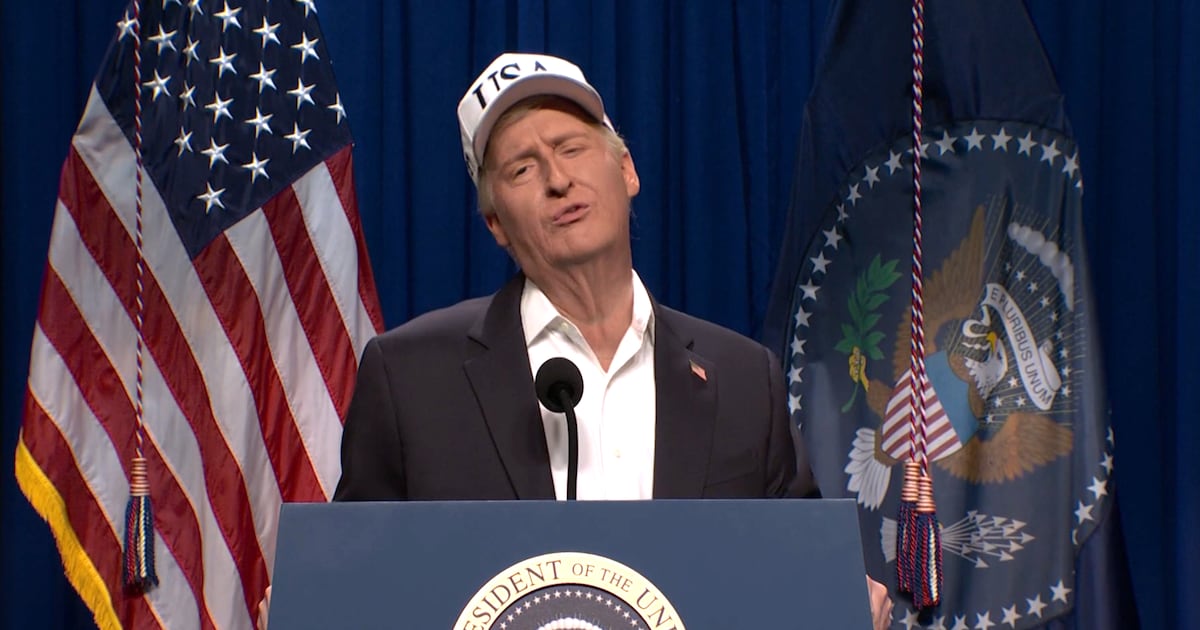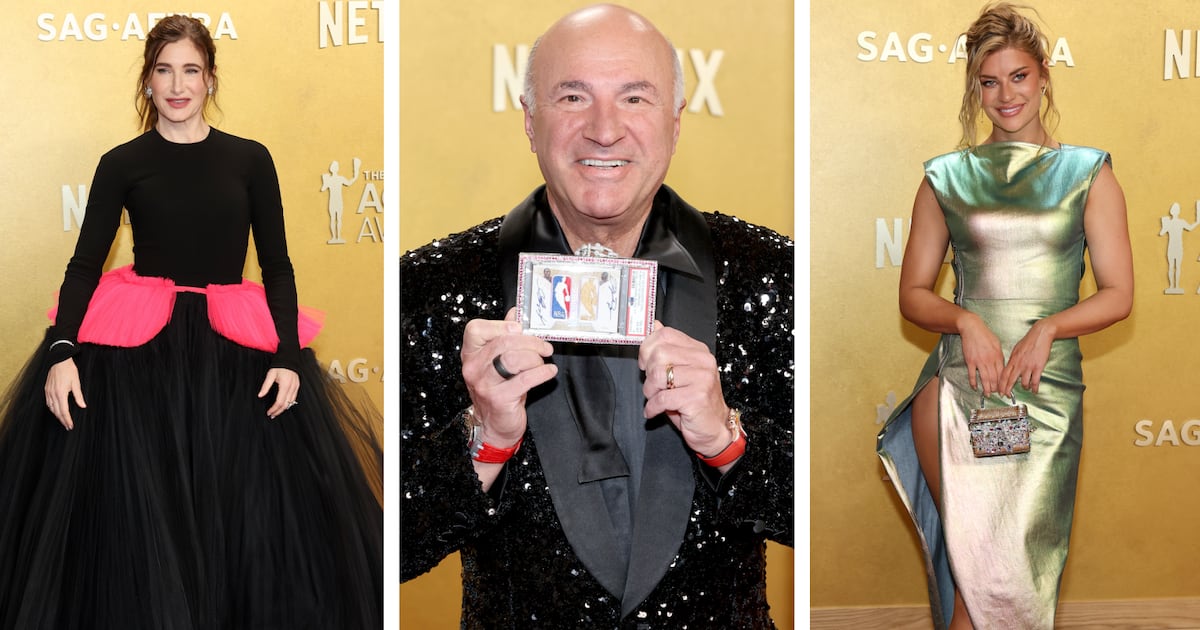When Tom Hanks first appears as the time-traveling lead character in This World of Tomorrow—possibly the most listless play in New York this Fall—the audience breaks out into the now-customary ripple of applause accorded to a celebrity’s first appearance on stage.
If this round of applause sounds a little tentative, it might be because people are wondering if it’s really Hanks. His character, Bert Allenberry, sports a visually discombobulating grey wig. Under its smoothly parted thatch, it is indeed the movie star; as soon as Bert opens his mouth, we hear the craggily folksy, reassuring timbre of America’s ur-dad.
But the thrill is short-lived. While it is quite the coup to tempt Hanks back to the stage—after his Tony-nominated Broadway run playing journalist Mike McAlary in Nora Ephron’s 2013 play, Lucky Guy—this new play, directed by Kenny Leon and running at the Shed until Dec. 21, is the limpest possible vehicle for Hanks’ talents.
The story—which Hanks co-wrote with James Glossman, based on short stories Hanks himself wrote—is that Bert, a disenchanted scientist in 2089, keeps traveling back in time to the 1939 New York World’s Fair held in Flushing Meadow, Queens. (Bert is an echo of other of many Hanks’ movie characters, who have negotiated fantastical or extreme adventures in time, and/or who hark back to an idealized vision of America-past.)

The reason for Bert’s repeat-sorties is that on his first time-traveling journey he meets Carmen Perry (Kelli O’Hara), who is visiting the fair with her loudmouth niece Virginia (Kayli Carter).
Despite Virginia’s endless, obstructive prattle, Bert slowly gets to know Carmen, a modest bookkeeper who is visiting the Fair as a treat to herself and her niece the day before her birthday. Along with Bert’s travels, and he clearly being smitten with her, their meet-cute crystallizes the play’s twinned themes of love and time. Bert keeps returning to a day that Carmen lives only once. The Fair itself is a showcase of a shiny, imagined American future. You sense the play, and Hanks, are happiest in the imagined past.
While Bert amasses a catalog of memories and life-facts about Carmen (which she reveals in each of their encounters), she—at least initially—keeps seeing him over and over again for the first time. Hanks’ journeys to the past come with their own threat to his physical health.
In 2089, an all-knowledgeable human-ish computer (played by Jamie Ann Romero), adds another complication, revealing to Bert what happens to Carmen in the past, which sends him back to 1939 to try and change destiny. Two stops the play makes at a Greek diner in 1953 reveal how successful he is. (Jay O. Sanders does double duty as Carmen’s gruff, kind father and the gruff, kind owner of the diner. Ruben Santiago-Hudson plays Hanks’ boss, puzzlingly named M-Dash, in 2089.)

The play aimlessly ponders: What possible present, past, and future can Bert and Carmen have? Can they fall in love across the bounds of time? While Hanks’ affable charm remains intact, chemistry-wise the characters seem more buddies than would-be lovers. Occasional, portentous speeches by Hanks about history and ideals suggest the play wants to say something bigger, but it ultimately retreats from doing so.
Odd plot holes pop up. OK, it’s 2089 and time and foodstuffs will move on, but would Bert—who is supposed to be a knowledgeable, time-traveling scientist—really be surprised by the coins of 1939 or the presence of milk? How does he actually travel back in time from a New York hotel room? This would surely be quite fun to stage and watch.

A catatonic dullness and brace of stereotypical side characters further clog the pacing of This World of Tomorrow. Its repetitive script is partially lifted by three things: the consistently versatile and engaging O’Hara who brings a sage edge to Carmen, Derek McLane’s vertical-pillar projections that transport the audience back to 1939, and Dede Ayite’s lovely costuming.
But this isn’t enough to save This World of Tomorrow from its dreary circling of character and themes. The play doesn’t even let the audience see its potentially biggest moments, such as Bert telling Carmen he’s a time-traveling scientist. Instead, and ironically in a show all about time, it wastes just over two hours of it.

